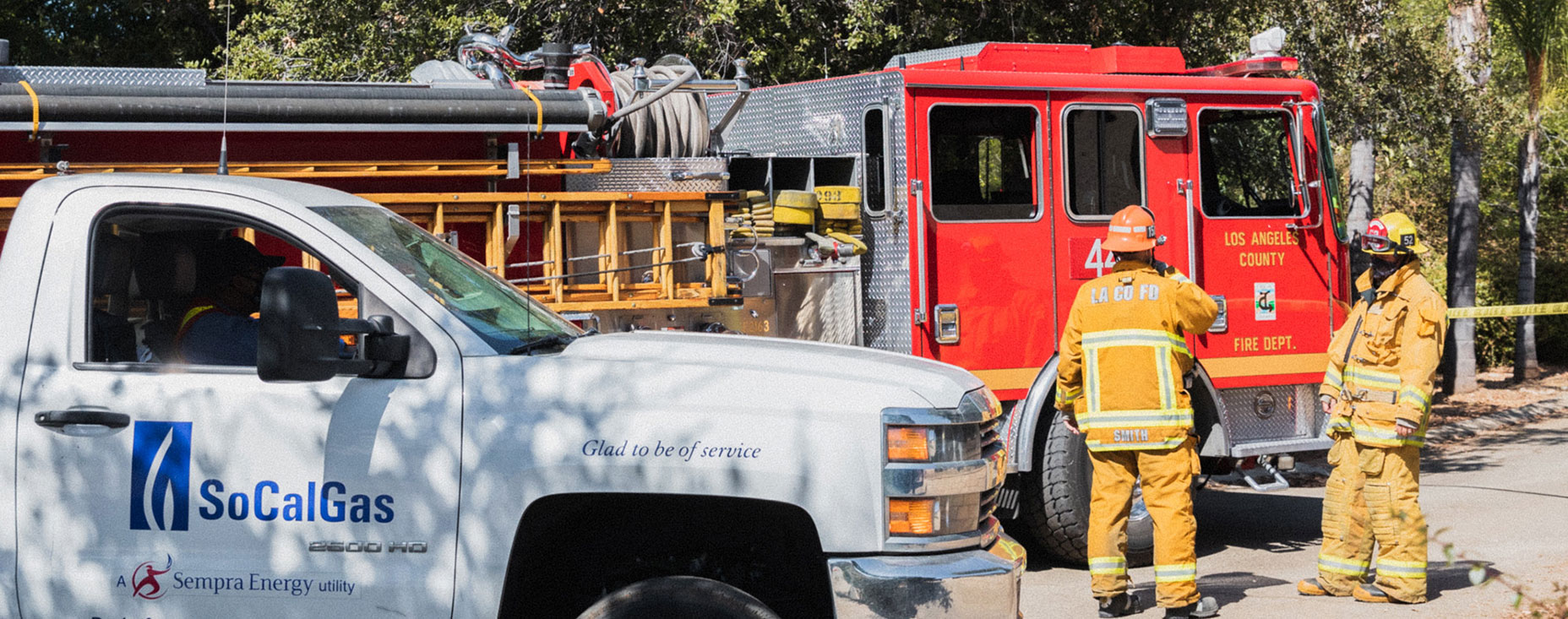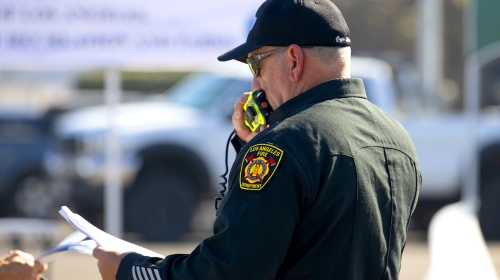
Emergency Preparedness
In an emergency, SoCalGas focuses on the safety of our employees, customers, community and first responders by getting the natural gas under control. Police and Fire First Responders can assist us in our efforts by protecting the public and isolating or removing ignition sources, if it is safe to do so. Advance knowledge of where pipelines are located in your community, the products transported in them, and how to contact and work together with the pipeline operator in the event of an incident, are key factors to an effective and safe response. When responding to a natural gas pipeline emergency, make sure your dispatch calls our emergency number at (213) 244-8900.
Incident Response Checklist

Key Steps For Emergency Responders
- Obtain as much information from the calling party
- What type of incident is taking place (inside natural gas odor, outside natural gas odor, natural gas line damaged by a contractor)
- Provide the information gathered of the incident to the first responder agencies
- Contact SoCalGas as soon as possible and provide all applicable information for the incident
- Ask to speak to or request a call back from the responding SoCalGas supervisor if needed
- Approach the incident cautiously and stay upwind
- Only attempt to control ignition sources if it’s safe to do so
- DO NOT operate main line natural gas valves
- DO NOT attempt to control blowing gas
- Lightly foam the damaged natural gas leak area to prevent static electricity
- Create a safety perimeter
- Work with SoCalGas personal on evacuating surrounding buildings
- Evacuate the public 150-300 feet or more if necessary
- Assist with road closures and traffic detours
- Verify the safety of the building prior to entering
- Provide medical assistance as needed
- Activate the Emergency Operations Center (EOC) if needed
- Coordinate with local, state and federal agencies
- Contact SoCalGas if the incident calls for the need
- Request SoCalGas fill the liaison position in county EOC if needed
- Respond to the incident as soon as notification has been made
- Report to the fire and law enforcement command post and become part of unified command
- Monitor the area for natural gas indications
- Isolate the pipeline if requested
- Mitigate all pipeline damage
Buried Pipeline Emergencies
Pipeline Association for Public Awareness Emergency Response Guidelines:
Many types of emergency situations can affect buried pipelines. These include train derailments, floods, earthquakes, forest fires, structure collapses, and other similar events where earth has been disturbed or will be moved as part of the response efforts. In these situations, pipeline companies should be notified as soon as possible so they can monitor and verify the integrity of nearby pipelines. First responders may be able to notify pipeline operators of the emergency by calling 811 and informing the One-Call Center of the situation. If the call center procedures allow these types of notifications, all operators with buried pipelines in the area will be notified. Coordination with pipeline operators during these types of emergency situations will help protect the safety of the response team and also the surrounding community.


